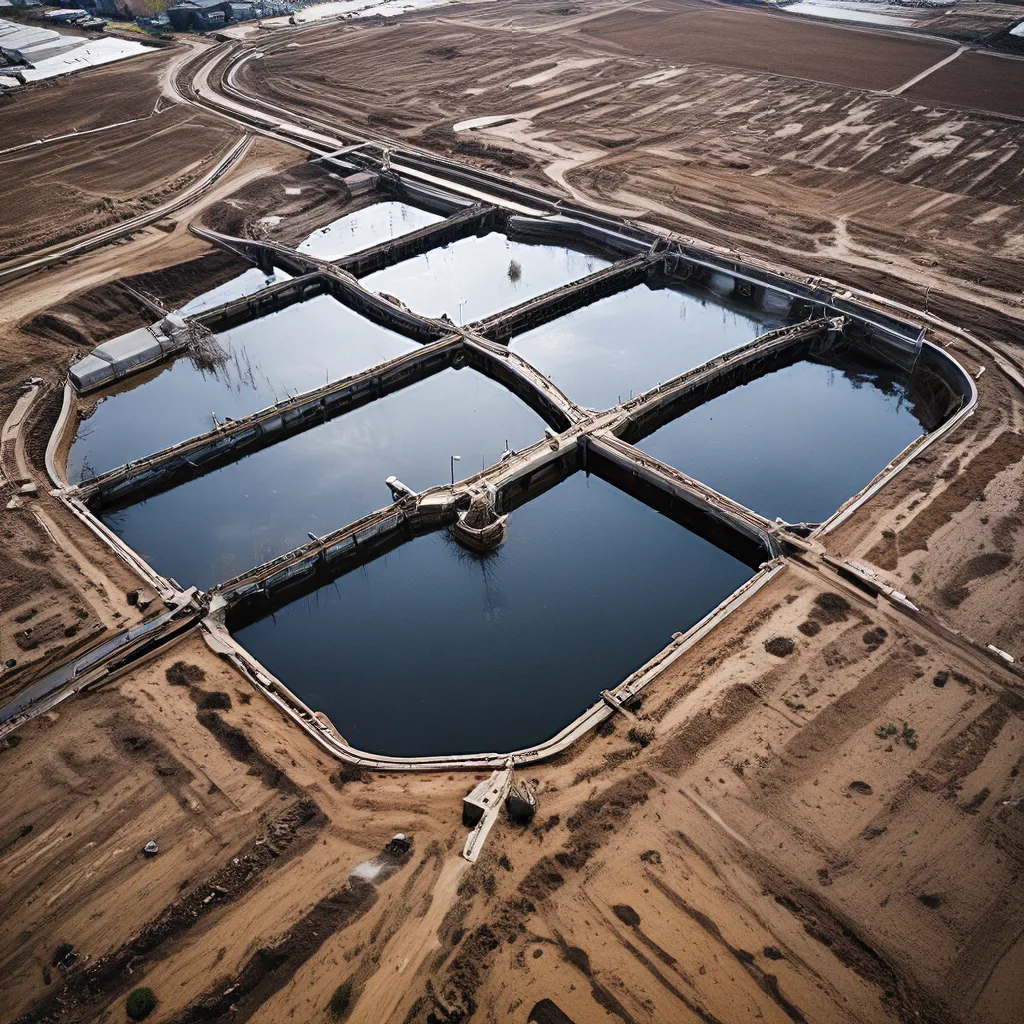
As someone deeply passionate about the environment and the crucial role of wastewater management, I’ve been closely following the developments in this space – and boy, let me tell you, it’s a wild ride! The intersection of wastewater and climate change adaptation is a topic that’s equal parts fascinating and downright terrifying. But don’t worry, I’ll do my best to guide you through this journey, armed with a healthy dose of wit and a pinch of sarcasm.
Wastewater Infrastructure at Risk
Let’s start with the sobering reality that climate change is putting our wastewater infrastructure in the crosshairs. Rising sea levels and intensifying storms are undermining and damaging critical facilities like pump stations, treatment plants, and even the good ol’ sewer pipes. It’s like Mother Nature is playing a game of “Guess where I’m going to strike next?” and our poor infrastructure is just the hapless punching bag.
But wait, there’s more! The threat extends beyond just the physical structures. Climate change is also messing with the very chemistry of our wastewater. Increased temperatures and shifting precipitation patterns can alter the composition and behavior of the, uh, “stuff” we flush down the drain. Suddenly, our tried-and-true treatment methods are, well, not so tried-and-true anymore. It’s like trying to bake a cake with a wonky oven – the results are bound to be a hot, steaming mess.
Underserved Communities at Greater Risk
Now, here’s where things get really depressing. The impacts of climate change on wastewater infrastructure tend to hit underserved communities the hardest. These communities often face greater exposure to pollutants and lack the resources to respond and adapt. It’s like a perfect storm of environmental injustice – the people who can least afford it are the ones who end up paying the highest price.
Imagine a scenario where a coastal community’s wastewater system is overwhelmed by rising sea levels and intense storms. The result? Sewage backups, contaminated drinking water, and a public health crisis that disproportionately affects the most vulnerable residents. It’s a nightmare scenario that’s all too real in far too many places.
Proactive Adaptation Strategies
But it’s not all doom and gloom, folks. There’s a glimmer of hope in the form of proactive adaptation strategies that are being explored and implemented around the world. Take the Ocean Beach Climate Change Adaptation Project in San Francisco, for example. This forward-thinking initiative is tackling the problem head-on, constructing a buried seawall to protect critical wastewater infrastructure and creating new public spaces where the old highway used to be.
The key here is community engagement and collaboration. By bringing together stakeholders from local agencies, non-profit organizations, and the community itself, these projects are able to identify the most pressing needs and develop tailored solutions that actually work for the people who will be impacted the most.
Balancing Environmental and Community Needs
Of course, it’s not as simple as just building a big ol’ wall and calling it a day. These adaptation strategies need to strike a delicate balance between protecting the environment and meeting the needs of the community. After all, what good is a fancy new seawall if it ends up cutting off public access to the beach and degrading the local ecosystem?
That’s why initiatives like the Ocean Beach project are taking a more holistic approach, incorporating elements like beach nourishment, multi-use trails, and habitat restoration. It’s about finding creative ways to safeguard critical infrastructure while also enhancing the overall coastal experience for everyone who calls that area home.
The Role of Wastewater Services
And where do wastewater services fit into all of this, you ask? Well, let me tell you, they’re playing a pivotal role in the climate change adaptation game. Wastewater management companies like Alpha Wastewater are at the forefront of developing innovative solutions to protect our aging infrastructure and ensure that our communities can weather the storm (pun intended).
From advanced treatment technologies to cutting-edge monitoring systems, these unsung heroes are working tirelessly to keep our wastewater systems resilient and adaptable. And let me tell you, it’s no easy feat. It’s like trying to fix a leaky faucet while the whole house is flooding – you’ve got to be equal parts MacGyver and Houdini.
The Road Ahead
As we look to the future, the challenges posed by the intersection of wastewater and climate change adaptation are only going to become more complex and pressing. But with a combination of scientific research, community engagement, and strategic investments, I believe we can weather this storm (okay, I’ll stop with the puns now).
Researchers are working tirelessly to understand the cumulative impacts of climate change, environmental justice, and public health, empowering communities to take action and advocate for the resources they need. And innovative companies like Alpha Wastewater are at the forefront of developing the cutting-edge solutions that will keep our wastewater systems resilient and adaptable.
It’s a daunting task, to be sure, but I’m cautiously optimistic that we can rise to the challenge. After all, the future of our communities and the health of our planet are at stake. So let’s roll up our sleeves, get a little dirty (pun totally intended this time), and work together to create a more sustainable, climate-resilient future. Who’s with me?